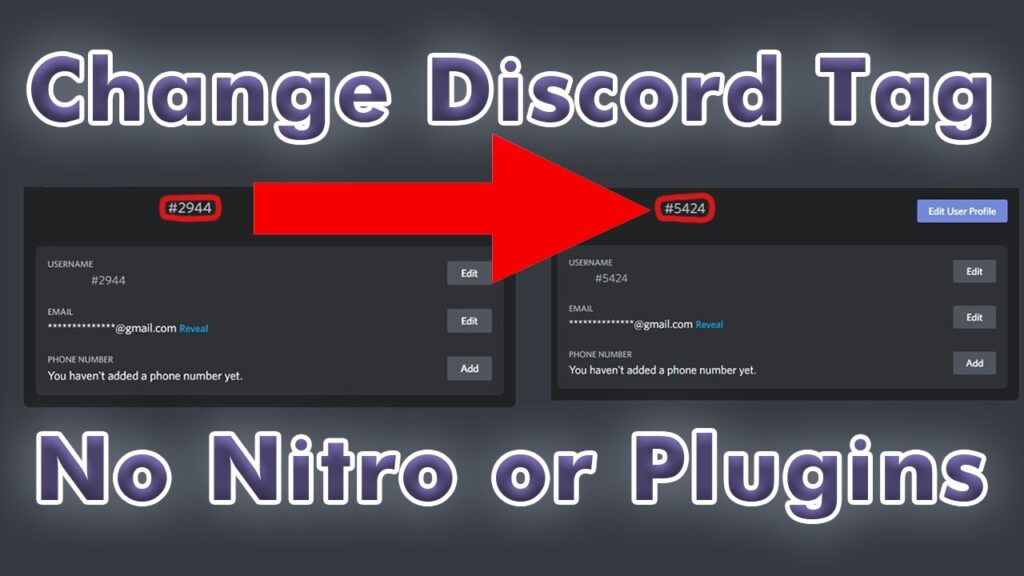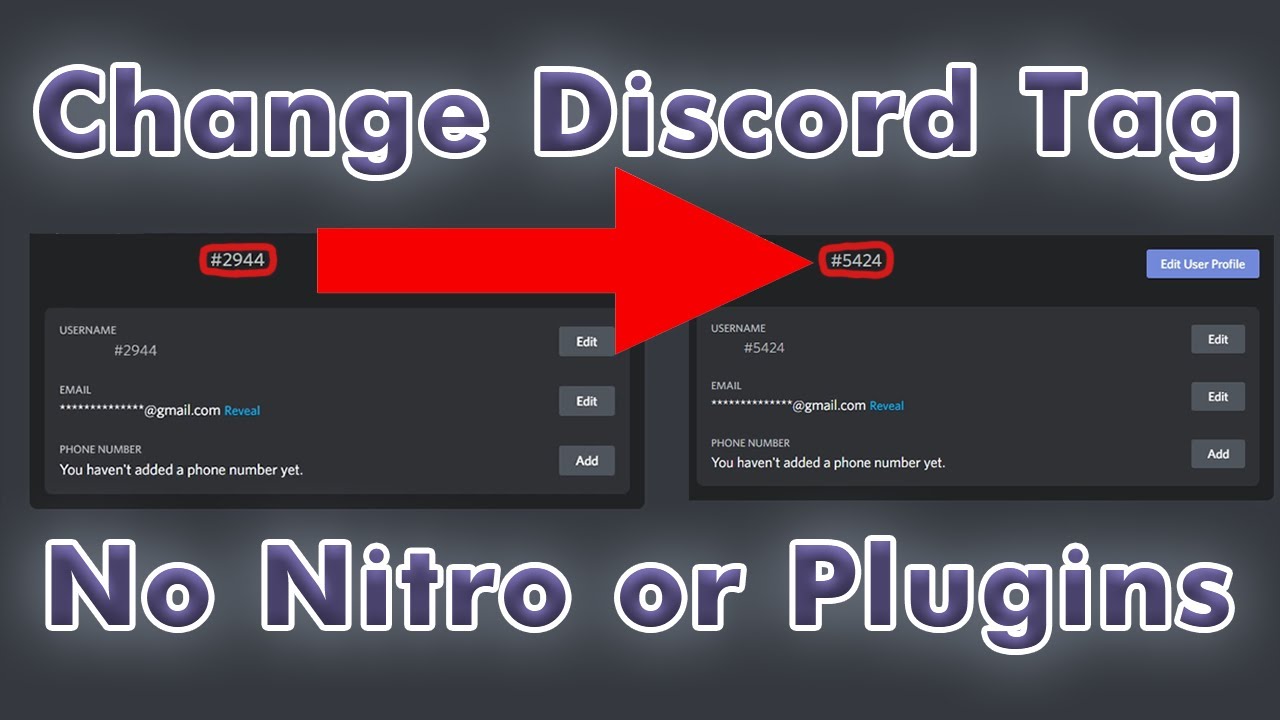
Decoding Discord Tags: The Ultimate Guide to Usernames and Identification
Discord, the ubiquitous platform for online communities, gaming enthusiasts, and collaborative workspaces, relies heavily on a system of unique identifiers: Discord tags. These seemingly simple combinations of usernames and numbers are the key to connecting with others, managing your online presence, and navigating the vast landscape of Discord servers. Understanding Discord tags is crucial for anyone who wants to master the platform and fully participate in its vibrant ecosystem. This comprehensive guide will delve into the intricacies of Discord tags, exploring their purpose, functionality, and significance in the modern digital world. We aim to provide you with the knowledge and understanding necessary to not only utilize Discord tags effectively but also to appreciate their role in shaping online identity and community interaction.
Understanding the Anatomy of Discord Tags
At its core, a Discord tag is a unique identifier assigned to each user on the platform. It consists of two parts: a username and a four-digit discriminator. The username is chosen by the user and can be changed, subject to availability. The discriminator, however, is automatically assigned by Discord and ensures that each user has a truly unique identifier, even if multiple users share the same username. This combination allows users to easily find and connect with each other, regardless of how common their chosen username might be. Think of it as a digital fingerprint, ensuring that no two users are exactly alike.
The Username: This is the part you control. It’s your chosen name on Discord and how others will primarily recognize you. Usernames are case-insensitive, meaning “ExampleUser” and “exampleuser” are considered the same. However, Discord now offers unique display names that can differ from usernames, adding another layer of personalization.
The Discriminator: This is the four-digit number following the username, separated by a ‘#’. It’s assigned randomly by Discord and is essential for distinguishing users with identical usernames. For example, if five people all choose the username “Gamer,” their Discord tags would be Gamer#1234, Gamer#5678, Gamer#9012, and so on. This ensures each individual is uniquely identifiable.
The Evolution and Importance of Discord Identification
Discord’s identification system has evolved over time, reflecting the platform’s growth and changing user needs. Initially, discriminators were mandatory and a core part of how users identified each other. However, Discord has introduced display names and the option to have a unique username without a discriminator for Nitro subscribers, signaling a shift towards greater personalization and control over one’s online identity.
The importance of Discord tags extends beyond simple identification. They play a critical role in:
- Adding Friends: Discord tags are the primary method for adding friends. You need to know someone’s exact tag to send them a friend request.
- Server Moderation: Moderators use Discord tags to identify and manage users within a server. This is crucial for enforcing rules and maintaining a positive community environment.
- Bot Commands: Many Discord bots rely on tags to identify users when executing commands. This allows for personalized interactions and automated tasks.
- Developer Integrations: Developers use Discord tags in their applications to integrate with the Discord API and access user information.
In essence, Discord tags are the foundation upon which user interactions and community management are built. Without them, the platform would be a chaotic and unmanageable space.
Discord Nitro and Custom Usernames
Discord Nitro, the platform’s premium subscription service, offers several enhancements, including the ability to customize your Discord tag. Nitro subscribers can change their discriminator, allowing them to choose a more memorable or aesthetically pleasing tag. This feature provides a greater degree of control over one’s online identity and allows users to further personalize their Discord experience.
However, it’s important to note that custom discriminators are not guaranteed. If another user already has the desired discriminator with the same username, the change may not be possible. Additionally, if a Nitro subscription expires, the user’s discriminator will revert to a randomly assigned number.
Recent changes have also allowed Nitro users to claim unique usernames, without the four-digit discriminator. This is a significant shift, offering a more streamlined and modern approach to identification. However, the traditional Discord tag system remains relevant for those who do not subscribe to Nitro or who prefer to retain the discriminator for various reasons.
Finding and Sharing Your Discord Tag
Locating your Discord tag is a simple process. On the desktop or web app, your tag is displayed at the bottom left of the screen, next to your profile picture and username. Clicking on it will automatically copy the tag to your clipboard, allowing you to easily share it with others. On the mobile app, you can find your tag by navigating to your profile and looking for the same information.
When sharing your Discord tag, it’s crucial to provide the exact combination of username and discriminator. Any errors will prevent others from adding you as a friend or finding you on the platform. Double-check the spelling of your username and ensure that the discriminator is correct. Consider using a screenshot to visually confirm the accuracy of your tag.
Discord’s API: Powering Integrations with User Tags
Discord’s robust API (Application Programming Interface) allows developers to create bots and integrations that interact with the platform. Discord tags play a crucial role in these integrations, enabling developers to identify and manage users programmatically.
Through the API, developers can retrieve user information based on their Discord tag, including their username, discriminator, avatar, and other profile details. This information can be used to personalize bot interactions, track user activity, and implement various community management features.
For example, a moderation bot might use Discord tags to identify users who have violated server rules and automatically issue warnings or bans. A gaming bot might use tags to track player statistics and display leaderboards. The possibilities are endless, and Discord’s API provides developers with the tools they need to create innovative and engaging experiences for users.
Security Considerations & Protecting Your Discord Identity
While Discord tags are primarily used for identification and connection, it’s essential to be mindful of security considerations. Sharing your Discord tag with unknown individuals can potentially expose you to unwanted attention or even malicious activity.
Best Practices:
- Be Cautious with Strangers: Avoid sharing your Discord tag with individuals you don’t trust.
- Protect Your Account: Use a strong and unique password for your Discord account.
- Enable Two-Factor Authentication: This adds an extra layer of security to your account.
- Be Aware of Phishing Scams: Be wary of suspicious links or messages that ask for your Discord tag or other personal information.
By following these best practices, you can protect your Discord identity and ensure a safe and enjoyable experience on the platform.
Alternatives to Discord Tags for User Identification
While Discord tags have been the standard for user identification, alternatives and supplementary methods exist. These include:
- User IDs: Each Discord user has a unique numerical ID that is primarily used internally by the platform and developers. While not typically used for direct user interaction, it’s a more permanent identifier than a Discord tag.
- Display Names: As mentioned, display names allow users to choose a name that differs from their username, providing another layer of personalization and identification.
- Server Nicknames: Within a specific server, users can set nicknames that are visible only to members of that server. This allows for customized identification within individual communities.
These alternatives offer flexibility and cater to different user preferences and use cases. However, Discord tags remain the most widely used and recognizable method for identifying users across the platform.
Discord Tag Generator Tools: Use with Caution
Several online tools claim to generate random or custom Discord tags. However, it’s crucial to approach these tools with caution. Discord tags are not randomly generated by users; they are assigned by the platform itself. These “generators” typically create a username and a random four-digit number, which may or may not correspond to an actual Discord user.
Using these tools to attempt to impersonate other users or engage in malicious activity is strictly against Discord’s terms of service and can result in account suspension or termination. It’s always best to obtain Discord tags directly from the users themselves.
Expert Insights on Optimizing Your Discord Profile
Creating a compelling Discord profile is crucial for making a positive first impression and effectively communicating your identity to others. Here are some expert tips for optimizing your profile:
- Choose a Memorable Username: Select a username that is easy to remember and reflects your personality or interests.
- Use a High-Quality Avatar: Your avatar is your visual representation on Discord. Choose an image that is clear, recognizable, and appropriate for the communities you participate in.
- Write a Concise and Engaging Bio: Your bio is a short description of yourself that appears on your profile. Use it to highlight your interests, skills, or anything else you want others to know about you.
- Connect Your Social Media Accounts: Linking your social media accounts to your Discord profile can help others verify your identity and learn more about you.
By following these tips, you can create a Discord profile that is both informative and engaging, helping you connect with others and build meaningful relationships on the platform.
The Future of Discord Identification: What’s Next?
Discord’s identification system is likely to continue evolving as the platform grows and adapts to changing user needs. The introduction of display names and unique usernames for Nitro subscribers suggests a trend towards greater personalization and control over one’s online identity.
Future developments might include:
- Enhanced Profile Customization: More options for customizing profiles, such as adding custom backgrounds or displaying preferred pronouns.
- Improved Verification Systems: More robust methods for verifying user identities and preventing impersonation.
- Decentralized Identifiers: Exploring the use of blockchain-based or other decentralized technologies for managing user identities.
As Discord continues to innovate, its identification system will undoubtedly play a crucial role in shaping the future of online communities and digital interaction.
Mastering Discord Tags: Your Gateway to Community Connection
Understanding Discord tags is essential for navigating the platform and connecting with others. From adding friends to participating in server communities, Discord tags are the foundation of user interaction. While Discord continues to evolve, the core principles of user identification and community management remain paramount. By mastering the use of Discord tags and staying informed about the platform’s ongoing developments, you can unlock the full potential of Discord and build meaningful connections with people from around the world. We encourage you to share your experiences with Discord and how you use the tagging system to enhance your online interactions. Dive deeper into our resources for advanced tips on managing your Discord server and optimizing your profile for maximum impact.

